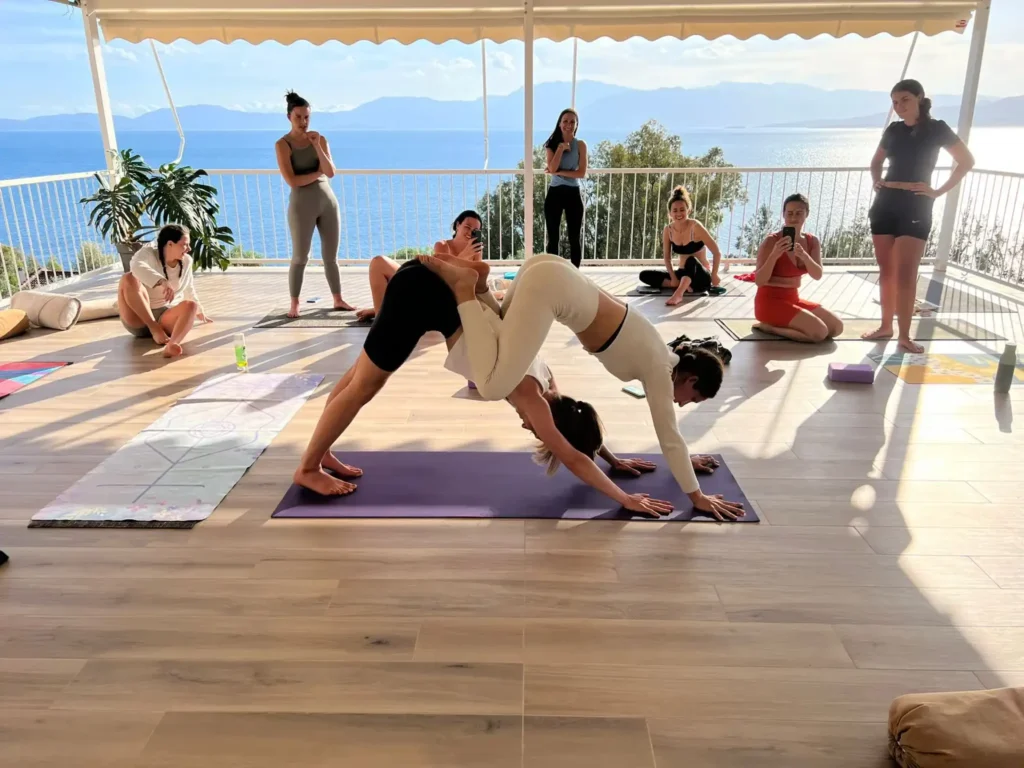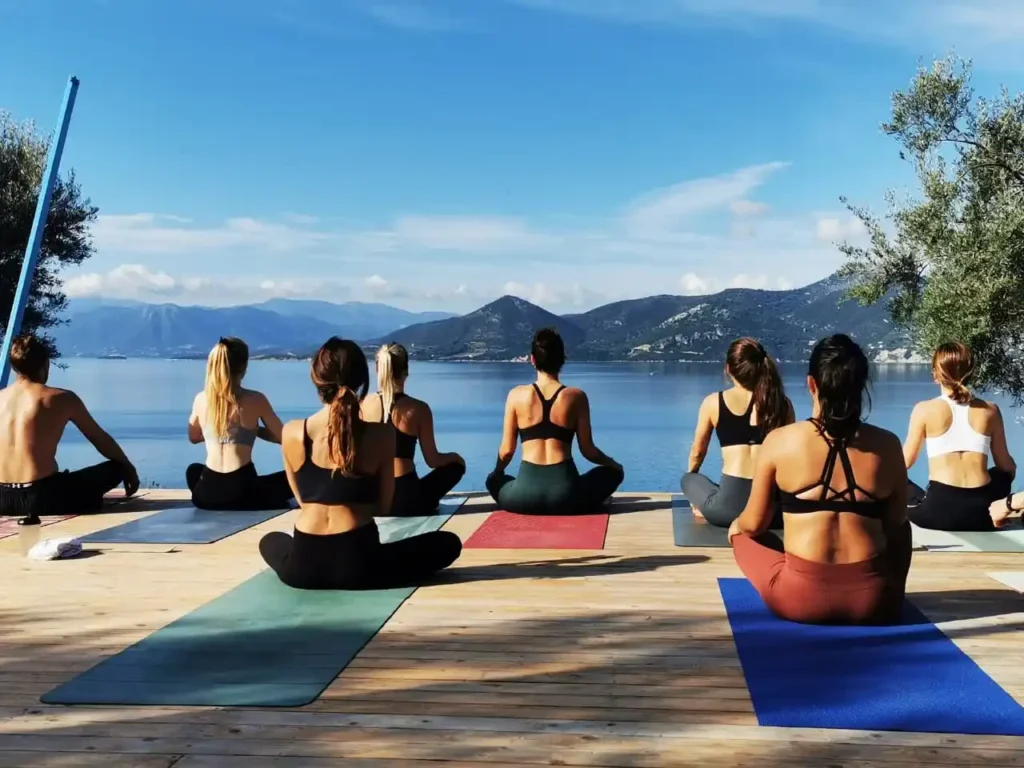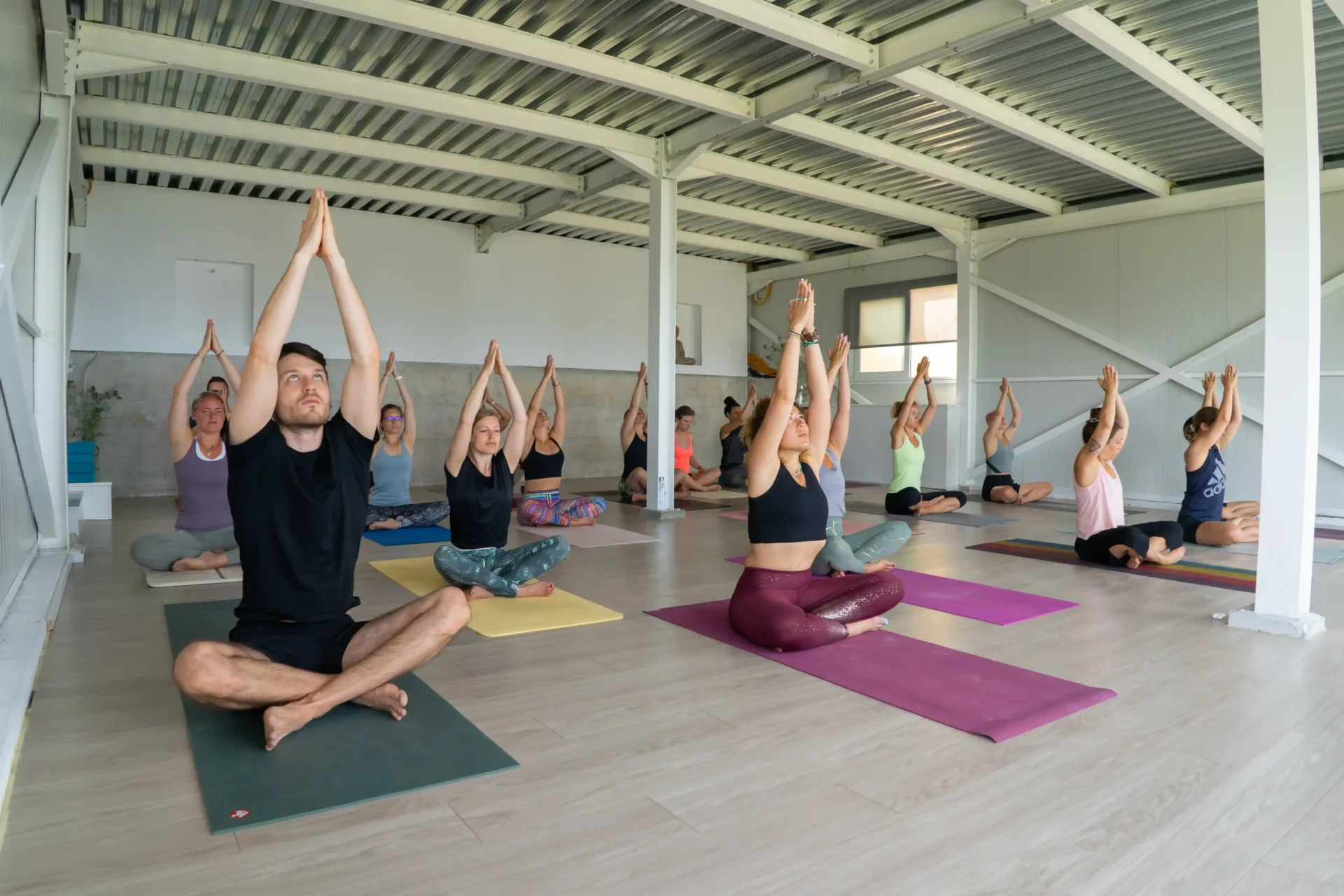If you’re looking to deepen your yoga practice and experience profound relaxation, Yin Yoga might be just what you need. Unlike more dynamic styles, Yin Yoga benefits are focused on holding gentle stretches for extended periods, allowing you to target deep connective tissues.
Imagine feeling more flexible, centered, and emotionally balanced. Yin Yoga offers all these benefits and more, promoting not only physical health but mental clarity and emotional well-being.
What is Yin Yoga?
Yin Yoga is a slow-paced style of yoga that targets the deep connective tissues, such as the ligaments, joints, and fascia. Unlike more active forms of yoga like Vinyasa or Ashtanga. Which focus on strength and movement, Yin Yoga encourages stillness and long-held poses that allow the body to relax and open. Typically, poses are held for 3-5 minutes, sometimes even longer, to give the body time to stretch deeply and release tension at a cellular level.
The practice was inspired by traditional Chinese medicine, which views the body’s energy system as interconnected. Yin Yoga seeks to activate the energy flow in the body, also known as “Qi” or “Chi,” by focusing on the meridian lines, which are pathways in the body through which energy flows.
Yin Yoga Benefits for Flexibility and Joint Health
One of the primary Yin Yoga benefits is improved flexibility. In contrast to dynamic yoga styles that focus on muscle engagement, Yin Yoga’s long-held stretches work deep into the fascia and ligaments, promoting flexibility over time. Because the poses are held for extended periods, the tissues have an opportunity to lengthen and release tension, which can improve overall range of motion.
Additionally, Yin Yoga is incredibly beneficial for joint health. By targeting the connective tissues surrounding the joints, this practice helps to keep the joints lubricated and mobile. Many people find that regular Yin Yoga practice helps to reduce joint stiffness. Particularly in areas like the hips, knees, and lower back.

Mental Clarity and Stress Relief
Yin Yoga is not just beneficial for the body; it also has profound effects on the mind. The slow, deliberate nature of the practice encourages a deep sense of relaxation and mindfulness. As you settle into a pose and allow your body to open, the mind begins to quiet, reducing mental clutter and promoting a sense of calm.
By holding poses for an extended period, Yin Yoga teaches patience and presence. The stillness encourages you to confront discomfort both physically and mentally, building resilience and a stronger sense of mindfulness. This focus on breathing and being present in the moment can lead to reduced levels of stress and anxiety.
Yin Yoga and Emotional Health
Yin Yoga can also have a profound impact on emotional well-being. By focusing on the body and encouraging stillness, this practice creates a safe space to explore and release emotions that may be stored in the body. Many practitioners report feeling lighter and more emotionally balanced after a Yin Yoga session.
As you hold poses, you may find that certain emotions or memories surface. This can be a sign that the body is releasing emotional blockages or tension. Yin Yoga’s focus on mindfulness helps create awareness of these emotions without judgment. Allowing you to process and let go of what no longer serves you.

The Yin Yoga Experience: What to Expect
If you’re new to Yin Yoga, you may wonder what a typical session looks like. Yin Yoga classes usually start with a brief meditation or breathing exercise to calm the mind and prepare the body. Then, the teacher will guide you through a series of poses, each held for several minutes. You may use props such as blankets, blocks, or bolsters to support your body and ensure comfort during longer holds.
It’s important to note that Yin Yoga is a very individual experience. Each person’s body is different, and the focus is on honoring your own pace and comfort level. You may find that some poses challenge your flexibility or ability to relax, but with practice, you’ll notice an increased ability to settle into the poses and embrace stillness.
How Often Should You Practice Yin Yoga?
To reap the full Yin Yoga benefits, it’s recommended to practice consistently. Ideally, you should aim for 1-2 sessions per week. Since Yin Yoga works deeply into the connective tissues, allowing time between sessions for your body to recover and integrate the changes is essential.
However, even practicing once a week can help with flexibility, stress relief, and emotional balance. The key to success in Yin Yoga is consistency and mindfulness.
Is Yin Yoga Right for You?
Yin Yoga is suitable for people of all fitness levels and ages. Whether you’re an athlete looking to increase flexibility, someone managing stress, or simply someone who enjoys slowing down and relaxing, Yin Yoga offers a range of benefits for both the body and mind.
If you’re dealing with chronic pain, stress, or emotional blockages, Yin Yoga can be especially helpful. It’s a gentle practice that provides space for healing and personal growth, and many people find it to be a restorative complement to other more physically demanding forms of exercise.
Final Thoughts
Incorporating Yin Yoga into your wellness routine can provide numerous Yin Yoga benefits. From increased flexibility and joint health to improved mental clarity and emotional balance. The practice’s emphasis on mindfulness, breathwork, and stillness helps reduce stress and tension, making it an invaluable tool for overall health and well-being.If you’re ready to explore Yin Yoga further. Consider diving into a teacher training program that can deepen your knowledge and practice. At YogaUnion, we offer both offline and online Yoga Teacher Training courses in Bali, where you can learn the art of teaching Yin Yoga and other styles. Join us today and begin your transformative journey toward a more balanced and mindful life.

